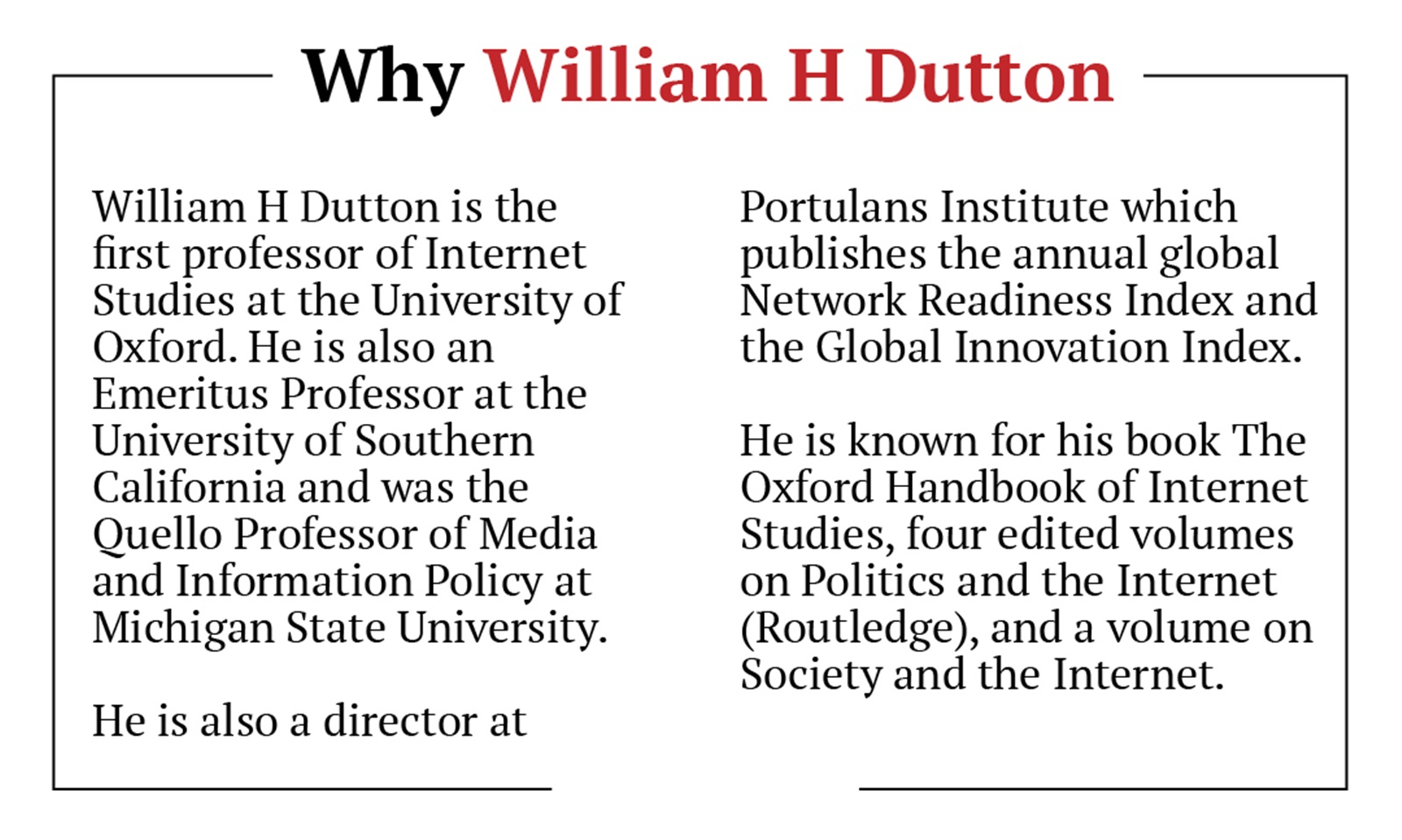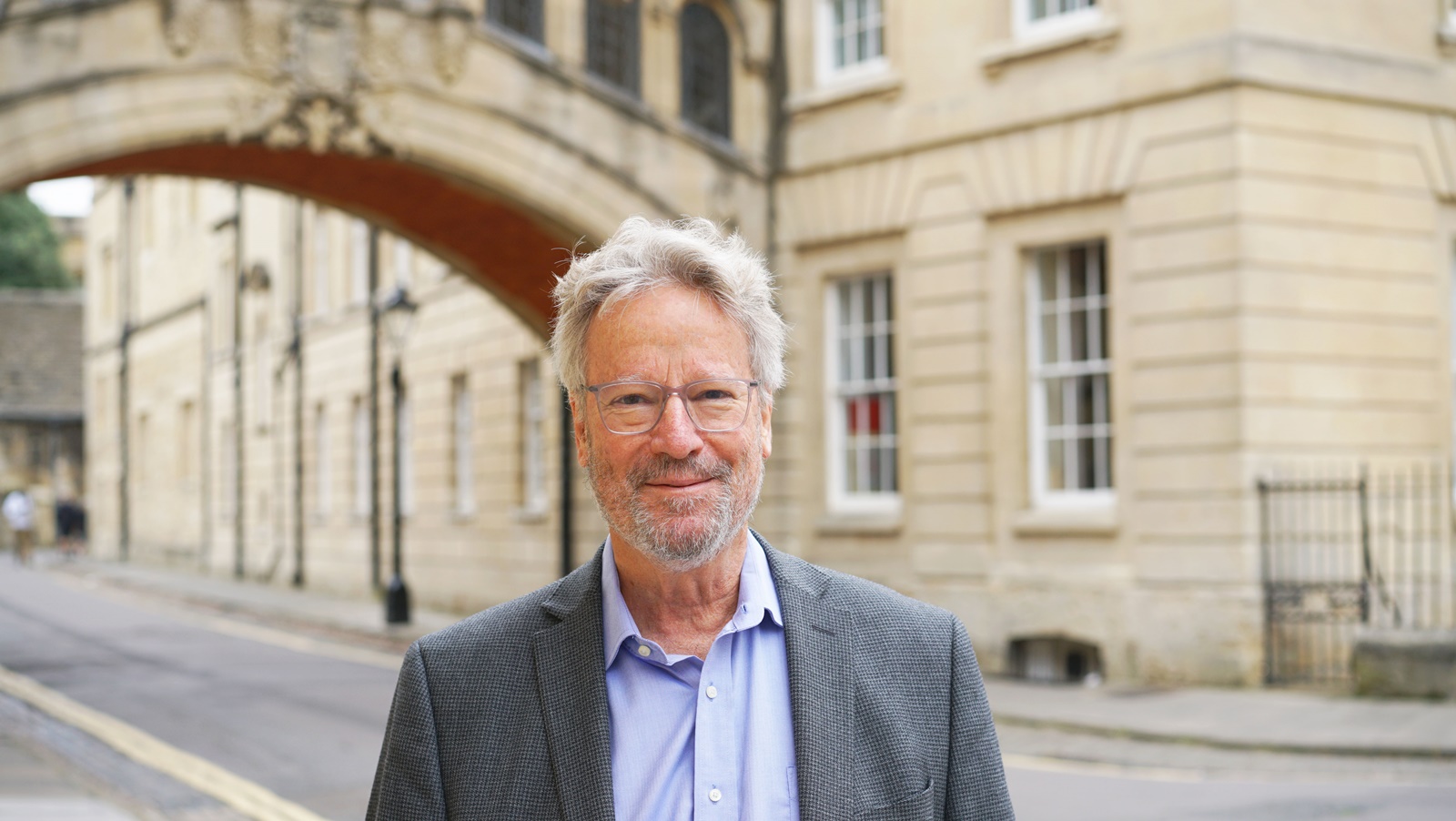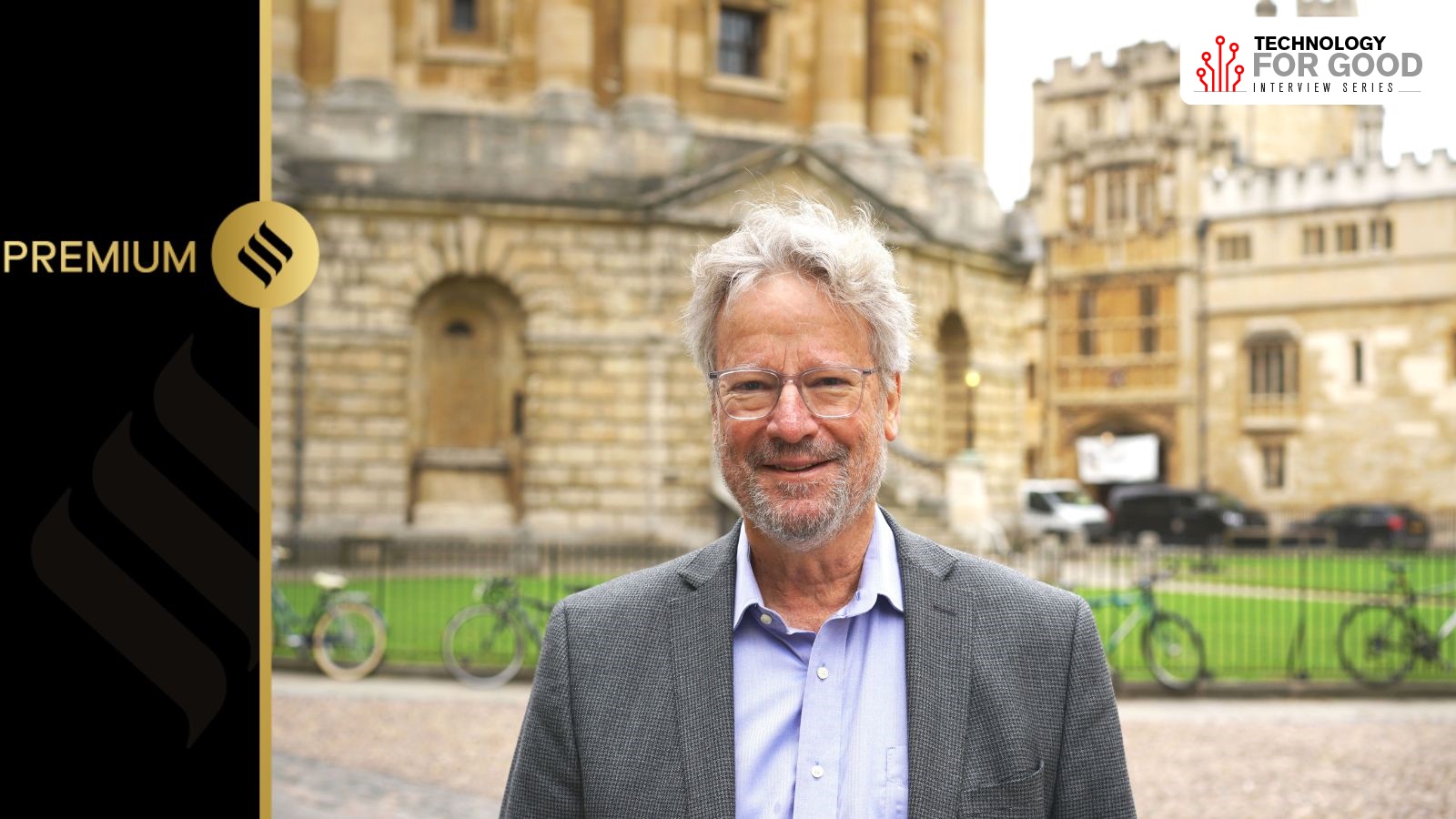William H Dutton is the founding director of the Oxford Internet Institute and the first professor of Internet Studies at the University of Oxford.
Now a Martin Fellow at the Global Cyber Security Capacity Centre at the University of Oxford, Dutton’s research focuses on the social and political implications of information and communication technologies, the Internet and related digital media.
His recent book, The Fifth Estate: The Power Shift of the Digital Age, says that a new collective of internet users, the Fifth Estate, are contributing to the pluralism of politics and the democratic process through the internet and new communication tech. This rise of the Fifth Estate is what he calls the power shift of the digital age and the internet’s gift to democracy.
In an interview with indianexpress.com, Dutton talks about the rise of ‘networked individuals’, the growing platformisation of the internet, and the ‘demonising’ of social media, among other things. Edited excerpts:
 Dutton is a Martin Fellow at the Global Cyber Security Capacity Centre at the University of Oxford.
Dutton is a Martin Fellow at the Global Cyber Security Capacity Centre at the University of Oxford.
Venkatesh Kannaiah: Can you tell us about your new book The Fifth Estate: The Power Shift of the Digital Age and its relevance to a country like India?
William H Dutton: We all know about the fourth estate, the press. The fifth estate, according to me, is the collective of networked individuals who have emerged due to the rise of digital technologies and communications like the internet. Such increased access to new tools has created a new class of individuals who, using the information provided by new tech, are trying to make governments and institutions accountable. We have many such examples, of climate-related activism in the west or anti-corruption activism or democracy campaigners in some developing countries.
These networked individuals are those who have become aware of their rights and their situation, and are holding all other estates — the press, judiciary, legislative and other arms of the government — to account. This could not have happened without the new technologies of the internet, and this is what I call the new power shift in society and in the digital age. These networked individuals are those I call the fifth estate.
The fifth estate networked individuals are not just about holding the government to account. They also gain power across all sectors of society, even in areas like medical care or gardening, or even debates within the family. They are enabled by search, creating and posting content, collaborating, and soon will be using AI to empower themselves.
Venkatesh Kannaiah: You talk about the rise of ‘networked individuals’ as a game changer. How are they facing up to the might of platforms and the ChatGPTs of the world?
William H Dutton: I see that the new AI large language models would only empower the networked individual, or the fifth estate. It would be unfortunate if these AI models go behind paywalls as that would accentuate the digital divide, but that is a minor hurdle. In the long run I see them as empowering.
There is also the criticism that these new AI models would undermine the Search functionality and would hinder availability of alternate sources of information. This would also be the case as we move towards voice based search. One must understand that the Search functionality is democratic in that it throws up a large number of alternative sources of information for the user to go to, but these AI models would come up with one single answer and that might lead to a shrinkage of alternative voices. However, the user is anyway the person consuming the information and he can keep on repeating the question in different ways if he is not happy with the answer or keep refining the question. The user will ultimately have the power.
The issue with platforms is that with the growing platformisation of the internet, governments will find it easy to control large parts of the internet through the control of the platforms. Governments will force the platforms to regulate content and the fear is that an overregulation, surveillance and censorship will ultimately reduce the space for alternative voices. The challenge to the future of the internet is with governments trying inappropriately to regulate the platforms.
We also need to stop demonising the internet and social media. Nowadays we seem to find that the reason for many of the ills of society is social media and they need to be regulated. It is quite ridiculous. It comes from a kind of tech determinism, supported mostly by anecdotal evidence and not based on hard data. This kind of tech determinism does not allow for the individual user to have his choices. It is as if the individual has no choice or is not allowed any choice. The research and the data that we have collected over the years does not show such filter bubbles. there is substantial choice for the user, and the fact is that the user is exercising these choices.
Venkatesh Kannaiah: Can you tell where India stands in your new reports on Network Readiness Index and Global Innovation Index?
William H Dutton: The Global Network Readiness Index 2023 is published by the Portulans Institute of which I am a director. It provides a framework for assessing the impact of Information Communication & Technology (ICT) on society. It evaluates 134 economies based on 58 indicators across four dimensions of digital readiness — technology, people, governance, and impact. This holistic approach means that the NRI covers issues ranging from AI and Internet of Things (IoT) to the role of digital transformation in reaching the sustainable development goals.
Middle- and low-income economies, especially China and India have notably surpassed expectations in digital readiness. India stands at a global rank of 60, while China is better and stands at 20. India scores high on technology, but a bit low on governance. India scores with its tech capabilities, digital content creation and stands out with good performance in scientific publications in AI, and high level of mobile broadband internet traffic. India also excels in AI talent concentration and ICT services exports.
 “AI is not so threatening to me, though I would not call myself a techno optimist,” Dutton says. (Photo credit: William Dutton)
“AI is not so threatening to me, though I would not call myself a techno optimist,” Dutton says. (Photo credit: William Dutton)
As for the Global Innovation Index, India has a score of 38.1 and is globally ranked 40, while Switzerland scores high with 67.6 and is ranked number one. Switzerland, Sweden, United States, United Kingdom and Singapore are on top of the list. India is amongst the most impressive innovation climbers of the last decade along with Indonesia, China and Turkey. While India has an overall rank of 40 in our global innovation index, it scores better in market sophistication, knowledge and tech inputs. China, India and Brazil have high concentrations of unicorn companies relative to their level of development. India also does make it into the top 100 by science and technology intensity with its four clusters: Bengaluru, Chennai, Delhi, and Mumbai.
Venkatesh Kannaiah: What does the Global Cyber Security Capacity Centre at Oxford do, and is there any India specific ranking?
William H Dutton: The Global Cyber Security Capacity Centre (GCSCC) is an international centre for research on cybersecurity capacity-building, promoting an increase in the scale, pace, quality and impact of cybersecurity capacity-building initiatives across the world. It has created a first-of-its-kind model to review cybersecurity capacity maturity to enable countries to self-assess, benchmark, better plan investments and form national cybersecurity strategies.
We do not do anything India specific, though we are exploring opportunities for the same.
Venkatesh Kannaiah: You have worked on the social implications of tech. How threatening is social media and AI for you?
William H Dutton: AI is not so threatening to me, though I would not call myself a techno optimist. I am a realist, but what I am concerned about is the techno determinism which puts doomsday scenarios with AI in the middle. If you see the scare mongering that had been in the media, in the early days of computers or the internet, you can see a pattern. All of tech will be a double-edged sword but we should not fall prey to conspiracy theorists.
As for social media being the culprit, most of these societies have been facing these problems even before the advent of the internet, and after all freedom of expression is not absolute and there are always restrictions and laws relating to inciting violence which countries have to protect themselves.
Perhaps an open discussion of issues in social media has led to reduction in potential violence or alternative voices have been heard, which was not the case earlier. In the US, it is the filming of violence on certain groups and communities which has led to large scale outrage and perhaps made lawmakers look up, take notice and resolve it. If not for social media, this would not have happened.
There would always be a bias, cognitive biases, confirmation bias, belief systems, but we should hope for the best and that a certain level of media literacy and civic groups would fight to reduce these biases. Nothing is perfect, but being scared does not help anyone.


